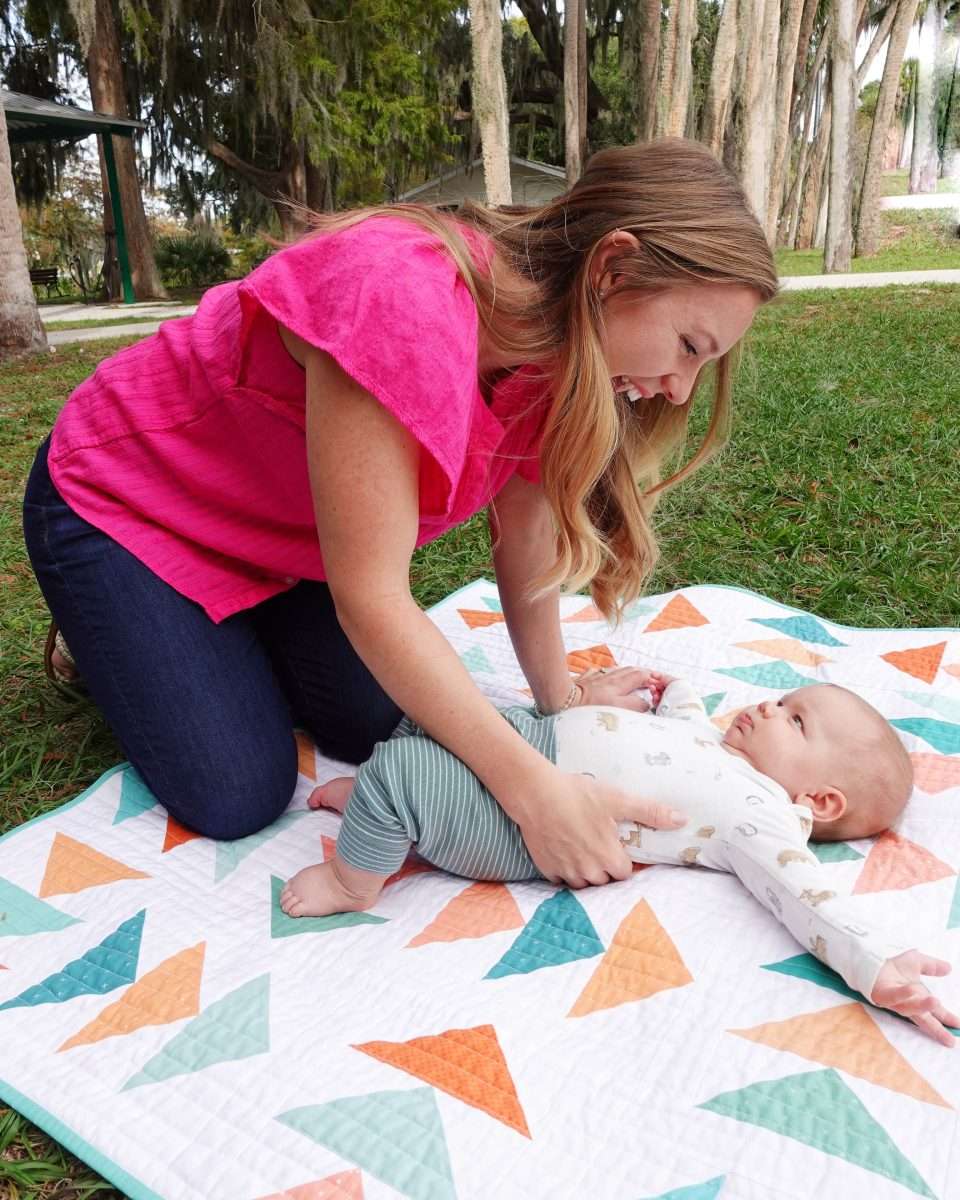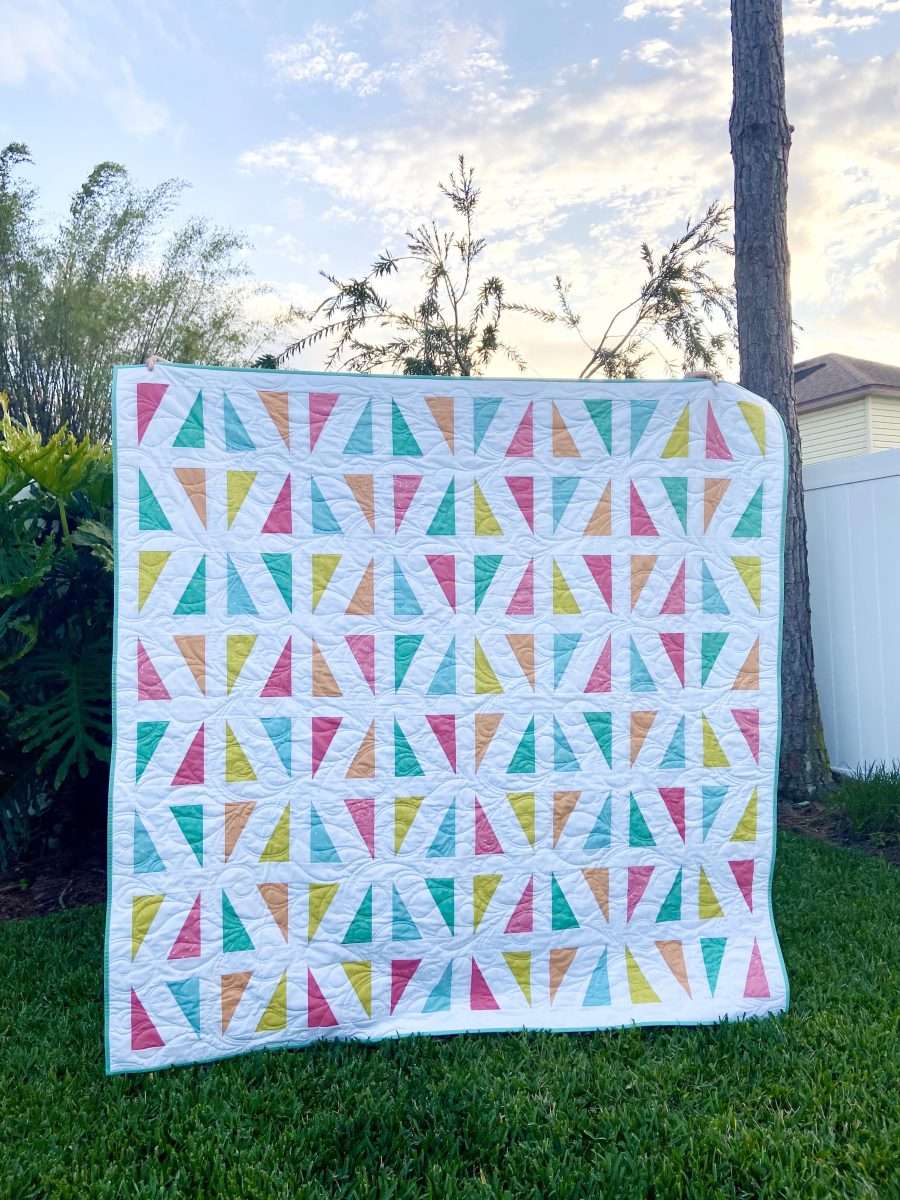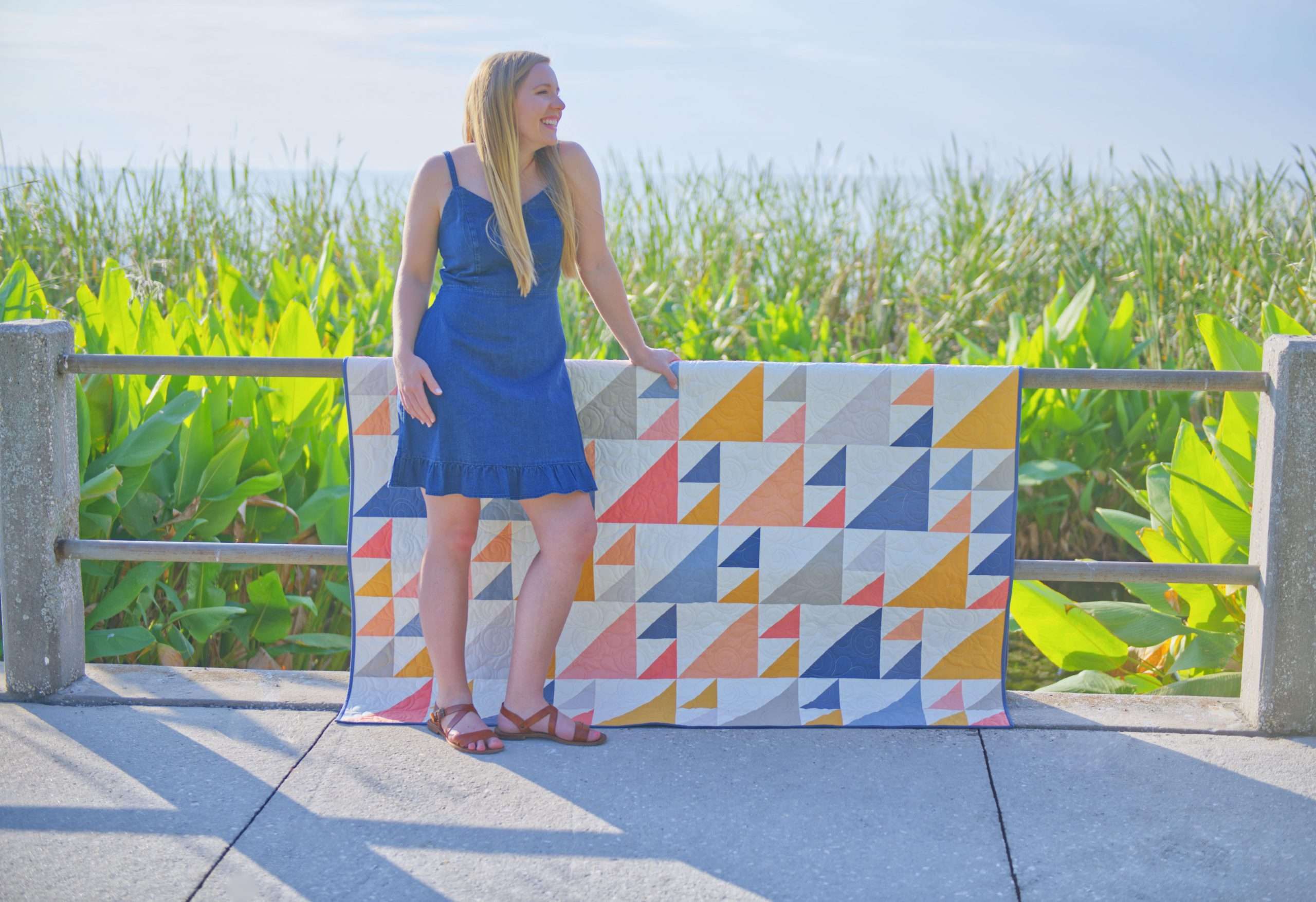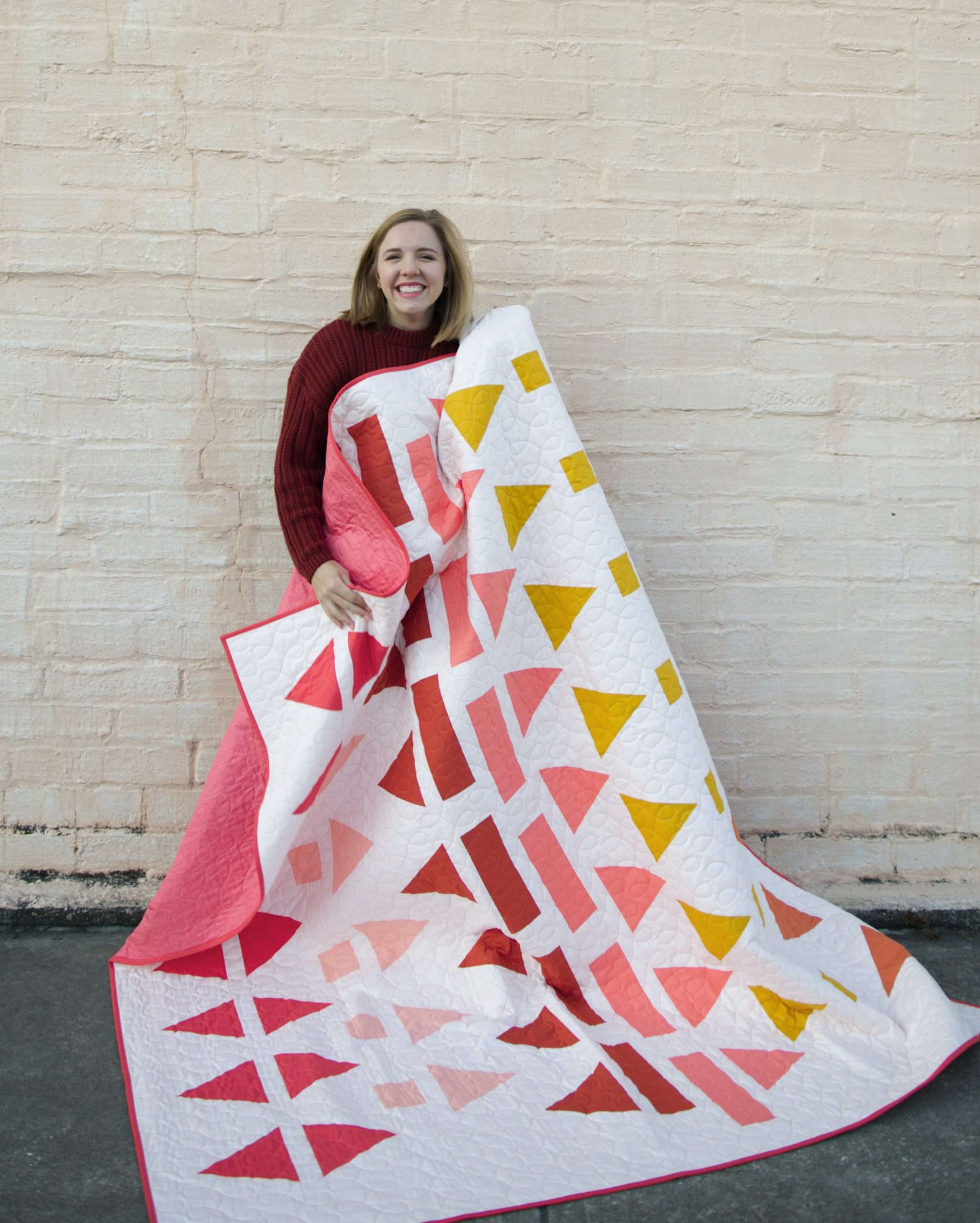How to Understand Sewing Thread
Have you ever struggled with understanding Sewing Thread? From the vast variety of different types of threads to the little numbers signifying thread weight, this article is here to demystify the thread-picking process. Keep reading if you want sewing thread explained!
We’ll cover a lot of commonly asked questions about sewing, quilting, and embroidery thread through this post. Use the links below to navigate to a specific topic you might be looking for about thread:
- What are the different types of sewing thread?
- Which sewing thread is strongest?
- What thread is best to use?
- What are sewing thread sizes? How to tell sewing thread size?
- Are Embroidery thread and Sewing thread the same?
- Where to buy sewing thread?
- Can sewing thread go bad?
- How to store sewing thread?

Different types of Sewing Thread
Sewing threads can be made out of a variety of different fibers and there’s not one that is necessarily better than the others. The important thing to keep in mind is that each different type of thread might serve a unique purpose. The goal of this article is to help you choose which type of thread is best for your particular project and desires!
What is Sewing Thread made of?
Sewing thread can be made out of a variety of fibers, either synthetic or natural. Some common materials you might see are cotton, polyester, rayon, nylon, silk or even metal foil or tinsel for metallic thread! The most popular materials you will find are polyester and cotton.
Polyester vs. Cotton Sewing Thread: Which is better?
One highly debated concern with sewing thread is whether polyester thread or cotton thread is better. The key thing is that both polyester thread and cotton thread are both great under certain circumstances. Check out this short video for a brief explanation of the differences between cotton and polyester thread.
Before deciding on which thread is “better”, it’s important first to know the other elements of your project before knowing which type of thread would work best. Thread selection is just one piece of the puzzle to a wonderfully created sewing project!

What sewing thread is the strongest?
When comparing polyester thread to cotton thread, Polyester is definitely stronger. Actually, pretty much any synthetic fiber thread will be stronger than the ones made with natural fibers.
It’s no secret that polyester thread is strong, both because of the raw material used, as well as the manufacturing process. Due to the fact that polyester thread is synthetic, it will not wear down with use and it’s not likely to fade in color either.
Keep reading below to find out how to select the right thread for your specific sewing project:
Which Sewing Thread to Use?
Best thread for big stitch hand quilting
The best thread for big stitch hand quilting is a thick cotton thread. I personally recommend either 8 wt or 12 wt cotton, but cotton embroidery floss will also work in a pinch! Perle cotton thread is my go-to, like this variety set from Wonderfil.
Want to learn more about Big Stitch Hand Quilting? You’re in luck, check out 10 easy steps to hand quilting for a complete tutorial!

Best thread for machine patchwork piecing
The most commonly used thread option for machine patchwork and piecing is cotton, typically about 50 wt. The crowd-favorite among quilters is 50 wt. Aurifil thread, because it is thin and not very “linty”.
I recommend purchasing a cone of a light neutral cotton thread to use for patchwork. Cotton thread is also a fantastic choice if you’re going to be doing your own quilting on your domestic machine.
I often will use the same thread for piecing and for quilting, but you could use a slighter larger cotton thread for quilting if you want those stitches to show more and be a tad bit stronger. A thread set like this one works great for both piecing and quilting.
Best thread for long arm quilting
Long arm machines are the biggest, most amazing of them all. They run really quickly and in all different directions! For this reason, many long arm quilters prefer using a polyester thread in their machines, as they are less likely to break.
Glide is a great option to try on a long arm! It comes highly recommended by many long arm quilters, is super durable, and has an incredible sheen!

Best thread for making garments
If you are sewing clothing, the best sewing thread will be strong and maybe even have a small amount of stretch in it. I recommend Mettler Metrosene or Gutermann all purpose.
Find out more about garment sewing over in Beginner’s Tips for Garment Sewing.
Best thread for machine embroidery
Machine embroidery can be done with a wide variety of options, but the best option is going to be either polyester or rayon thread. I personally prefer something that is strong, durable, and with a good amount of shine to it. My favorites are Sulky Rayon thread and Mettler POLYSHEEN.
Best thread for hand embroidery or cross stitch
Hand embroidery is completely different than machine embroidery, and therefore requires a vastly different type of thread too! The best thread to use for hand embroidery is a heavy weight cotton, such as embroidery floss. Embroidery floss is also best for cross stitching too. I love Aurifloss because it comes on spools and doesn’t get so tangled!

Are Embroidery Thread and Sewing Thread the same?
Short answer: Embroidery thread is a specific type of sewing thread!
I want to highlight here that embroidery can be done either with an embroidery machine or even by hand. Hand embroidery and machine embroidery are very different and use different threads as a results.
Machine embroidery thread is typically a strong, lightweight synthetic thread such as polyester or rayon, and has a fantastic sheen to it. The durability of synthetic threads really make it ideal for machine embroidery.
In contrast, hand embroidery is normally done with a thicker, cotton thread and has a very different look and feel to it. My personal recommendation for hand embroidery thread is Aurifloss.

How to understand thread sizes?
A very common confusion with sewing thread is how to understand the sizes, or thread weights.
Thread is given a numerical weight to signify the thickness or size of the thread itself. An interesting thing is that the higher the number, the thinner the thread is. And conversely, a lower number signifies thicker thread.
If you are using cotton thread, keep in mind that the higher number thread weights will be very thin, and not as strong as the lower numbers. If you want a super lightweight thread that is still very strong, you might consider 80 wt. or 100wt. polyester thread, like Wonderfil DecoBOB. See more recommendations in the sections above to find the best thread for each specific project!

Where to buy Sewing Thread?
Now that you understand so much about the different types of thread, and you’ve decided which sewing thread you need for your project, let’s talk about where to buy thread! I personally do the majority of all my crafty shopping online. So, that’s what I know best and can speak to in this article. I also recommend checking out your local stores for some of these popular and high quality brands!
What are the best brands to look for when shopping for sewing thread?
Here are some tried and trusted thread brands that you should check out, broken out by the thread type:
Here are some fantastic online options to look through for buying thread:

What is the best low-cost thread option?
If you are looking to save money on thread, I really recommend checking out Connecting Threads! I’ve been very impressed with the value of their Essential Cotton thread and EssentialPRO Polyester thread.
Can Sewing Thread go bad?
Have you ever wondered if sewing thread can expire and go bad? Over time, it can wear down and lose its strength. Keep reading to find out how to tell if your thread has gone bad. I also share how to store your thread to give it the longest shelf life!

How to tell if sewing machine thread has gone bad?
Sewing thread has gone bad if it loses its strength, color, or texture. If you find some really old thread and aren’t sure if you should use it or not, try tugging on it until it breaks. Was it a little too easy to break? (Hint: cotton thread will be easier to break than polyester, due to the thread type.)
Take a close look at the coloring of the spool – does one side of the thread spool look darker than the other? Then it might be spoiled.
How to store sewing thread properly
If you want to make sure your thread stays healthy for as long as possible, it’s important to store it properly! Correct thread storage means to keep it in a cool place out of direct sunlight. It’s also recommended to keep your thread somewhere where it won’t collect a bunch of dust.
I personally store my thread on hanging racks hung on the wall above my machine. This way, the thread is convenient to find and use, but it is not the best storage for thread longevity. The better option would be to store it in clear stackable containers.




